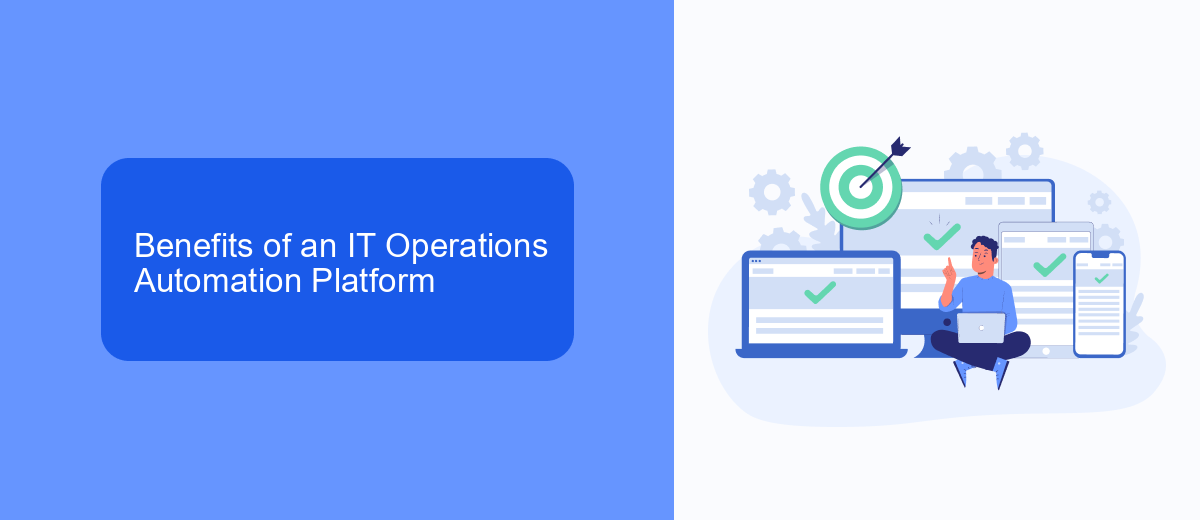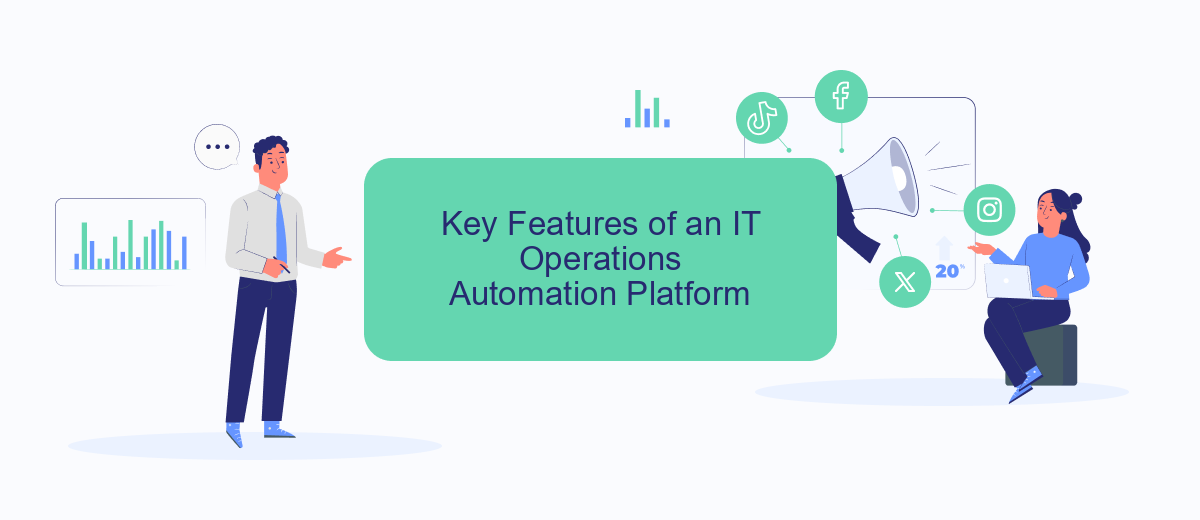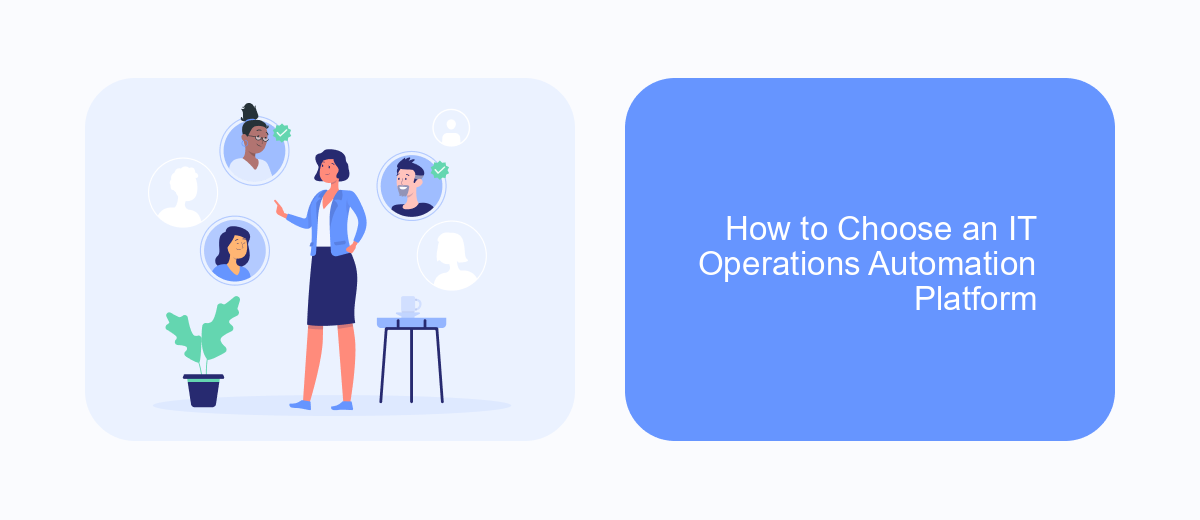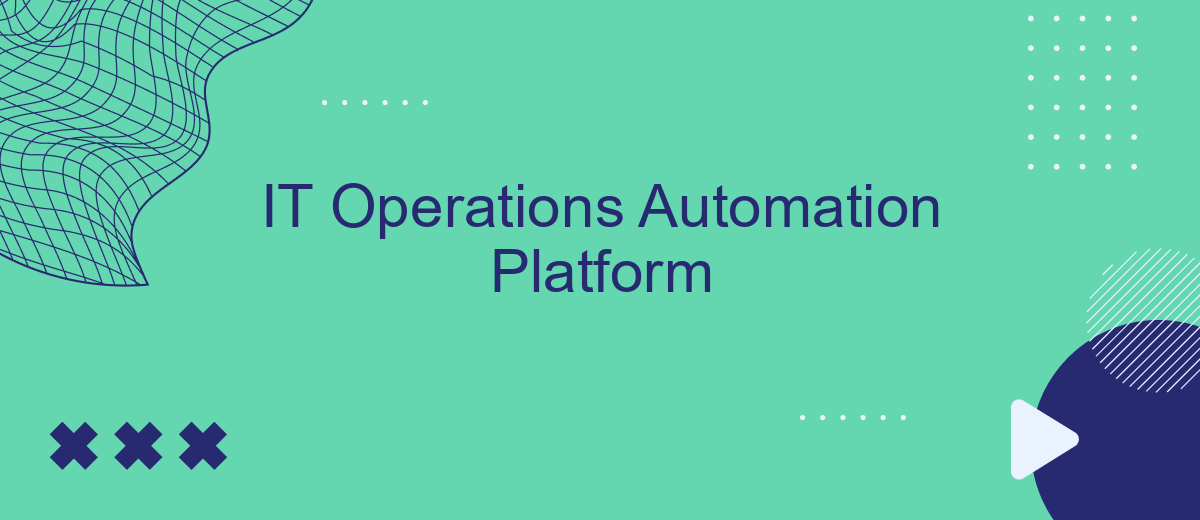In today's fast-paced digital landscape, IT operations face increasing demands for efficiency and reliability. An IT Operations Automation Platform emerges as a vital solution, streamlining processes, reducing human error, and enhancing productivity. By automating routine tasks and offering real-time monitoring, this platform empowers IT teams to focus on strategic initiatives, ultimately driving innovation and maintaining competitive advantage in an ever-evolving tech environment.
Introduction
In today's rapidly evolving technological landscape, businesses are increasingly relying on IT operations automation platforms to enhance efficiency, reduce operational costs, and improve service delivery. These platforms are designed to streamline a wide array of IT processes, enabling organizations to focus more on strategic initiatives rather than routine maintenance tasks. By automating repetitive processes, businesses can achieve faster response times, minimize human error, and ensure consistent performance across their IT infrastructure.
- Improved operational efficiency through task automation
- Reduced downtime with proactive monitoring and alerts
- Enhanced scalability to accommodate growing business needs
- Increased compliance with automated policy enforcement
- Cost savings by optimizing resource utilization
As the demand for digital transformation continues to grow, the adoption of IT operations automation platforms becomes crucial for organizations aiming to maintain a competitive edge. These platforms not only facilitate seamless integration with existing IT systems but also provide valuable insights through data analytics, enabling informed decision-making. As a result, businesses are better equipped to adapt to market changes, improve customer satisfaction, and drive innovation in their respective industries.
Benefits of an IT Operations Automation Platform

Implementing an IT Operations Automation Platform offers numerous advantages, primarily enhancing efficiency and reducing human error. By automating routine tasks, such platforms free up valuable time for IT teams, allowing them to focus on more strategic initiatives. This not only boosts productivity but also ensures consistent and reliable performance across IT operations. Moreover, automation helps in maintaining compliance and security standards by systematically applying necessary updates and patches, minimizing vulnerabilities and potential breaches.
Another significant benefit is the seamless integration capabilities these platforms provide. For instance, services like SaveMyLeads facilitate the easy setup of integrations, enabling businesses to connect various applications effortlessly. This ensures a smooth flow of information across systems, enhancing data accuracy and decision-making processes. Additionally, automation platforms can scale with growing business needs, adapting to increased workloads without compromising performance. Overall, an IT Operations Automation Platform is essential for modern businesses seeking to optimize their IT infrastructure and drive innovation.
Key Features of an IT Operations Automation Platform

An IT Operations Automation Platform is essential for modern businesses seeking to enhance efficiency and reduce manual workloads. These platforms streamline complex IT tasks, ensuring that systems run smoothly and without interruption. By automating routine operations, organizations can focus on innovation and strategic initiatives rather than mundane maintenance tasks.
- Task Automation: Automate repetitive tasks such as software updates, system monitoring, and data backups to improve efficiency and accuracy.
- Scalability: Easily scale operations to accommodate business growth without compromising performance or reliability.
- Integration: Seamlessly integrate with existing IT infrastructure and third-party tools to enhance functionality and data flow.
- Real-time Monitoring: Provide continuous monitoring and alerting to quickly identify and resolve issues before they impact operations.
- Analytics and Reporting: Generate insightful reports and analytics to support data-driven decision-making and optimize IT processes.
By leveraging these key features, businesses can enhance their IT operations, minimize downtime, and improve overall productivity. This not only reduces operational costs but also allows IT teams to focus on more strategic goals, driving innovation and competitive advantage in the market.
How to Choose an IT Operations Automation Platform

Choosing the right IT Operations Automation Platform is crucial for optimizing your IT processes and enhancing efficiency. Start by assessing your organization's specific needs and objectives. Consider the types of tasks you want to automate, the complexity of your IT environment, and your team's technical expertise.
Next, evaluate the features and capabilities of potential platforms. Look for solutions that offer scalability, integration with existing tools, and robust security measures. It's essential to ensure that the platform can grow with your business and adapt to changing technological landscapes.
- Compatibility with existing infrastructure
- User-friendly interface and ease of use
- Comprehensive support and documentation
- Cost-effectiveness and pricing model
- Community and vendor support
Finally, conduct trials or demos of shortlisted platforms to see how they perform in real-world scenarios. Involve your IT team in the decision-making process to gather diverse perspectives and ensure the chosen platform aligns with your operational goals. Making an informed choice will lead to smoother operations and better resource management.


Conclusion
In conclusion, the adoption of an IT Operations Automation Platform significantly enhances operational efficiency and reduces the likelihood of human error. By streamlining routine tasks and automating complex processes, organizations can focus on strategic initiatives rather than being bogged down by repetitive duties. This transformation not only boosts productivity but also ensures a more resilient IT infrastructure that can adapt swiftly to changing business needs.
Moreover, integrating such platforms with tools like SaveMyLeads can further optimize the automation process by simplifying the setup of integrations between various applications. SaveMyLeads offers a user-friendly interface that facilitates seamless data flow, enabling businesses to maintain consistent communication across platforms without the need for complex coding or extensive IT involvement. As a result, companies can achieve greater agility and responsiveness, positioning themselves for sustained growth in a competitive market. Embracing IT Operations Automation, therefore, is not just a technological upgrade but a strategic move towards future-proofing business operations.
FAQ
What is an IT Operations Automation Platform?
How can IT Operations Automation benefit my organization?
What types of tasks can be automated with an IT Operations Automation Platform?
How do I integrate automation into my existing IT infrastructure?
What should I consider when choosing an IT Operations Automation Platform?
Would you like your employees to receive real-time data on new Facebook leads, and automatically send a welcome email or SMS to users who have responded to your social media ad? All this and more can be implemented using the SaveMyLeads system. Connect the necessary services to your Facebook advertising account and automate data transfer and routine work. Let your employees focus on what really matters, rather than wasting time manually transferring data or sending out template emails.
